Terra Incognita
new essay: on motherhood, ambivalence, immigration, family, inheritance, and "the mother of all questions," out today in The Rumpus
Hello everyone,
I’m writing you uncharacteristically on a Wednesday morning because I wanted to share with you an essay I wrote—“Terra Incognita”—just published in The Rumpus. This is, without a doubt, the most intimate and close-in essay I’ve written, and I’m both thrilled and admittedly a bit nervous to share it with you.
Terra Incognita is written from a liminal space of “almost-motherhood” (term coined by Miranda Ward, I believe). I’ve been experiencing this space as not before one becomes a mother, but before one decides (if it is a decision) whether to try to become one.
I wrote Terra because the story I was so desperately seeking I couldn’t find anywhere —my particular concoction of pre-maternal ambivalence, my rumination on what Rebecca Solnit calls “the mother of all questions,” mixed with the ambiguous grief of immigration and pandemia, charged by the heartbeat of family (of origin, of making) and lineage.
There is—as with most published pieces of writing—a sizeable gap between the narrator (then-me) and the now-me, writing this missive to you. Ocean Vuong has some beautiful meditations on sitting with this gap (“We have to make peace with the fact that a (publication) is actually just a photo album, and that the organic psychic life of the poem is already growing somewhere else, somewhere inside you.”) So, in the spirit of already growing somewhere else, I also wanted to share a bit of a story-behind-the-story with you, here in The Liminal: annotations of sorts.
I wrote most of this essay in 2021, as an attempt to decipher all that transpired during the seismic shifts (inner/outer) of 2020. In anticipating its publication these past weeks, a part of me felt an unsettled urge to claim the distance that has grown between the me that wrote it and the me of today, in 2023. Today, I find myself in a very different place in relation to almost-motherhood (the ambivalence I expressed in the essay has a new—and if possible more personal—sting to it).
Yet only now can I see how, in writing this essay, I was building the bridge I was looking for all this time. One terra to another. Writing this essay was part of crossing it.
This story is not only my own. At its core it is shared by the one I’ve chosen to build my family with—Tobias—and the ways our different cultures and ages and longings have intersected, diverged, and fundamentally evolved one another. We were also searching for a narrative to locate ourselves within—as we hadn’t encountered many stories like ours. I am grateful to Tobias for encouraging me to share our story, in all of its intimacies, and more largely for always making sure (in his tenderest of nudging ways) that I am still writing.
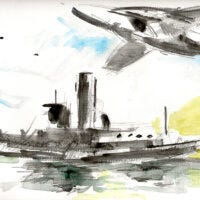
Terra is also a story of my family of origin—my mother, my father, and my mother’s mother (who I only met primordially).
Ours is a family built by a generational hopscotch, and it wasn’t until I learned Swedish that I found the word I was searching for my entire life to describe.
My parents, my mother especially, are of course central to this story. I can’t imagine it’s necessarily easy if one’s daughter decides to write publicly about family intimacies and how we came to be. Somehow, though, they’ve only shown me support and encouragement to do so, and the gift of that is not lost on me. I’m grateful and proud of our creative kinship across oceans these past years, and in ways this essay is a product of that, too.
Politics of motherhood and reproductive rights, and how they can so vastly vary across borders and cultures and nations, are also a throughline. Living among and loving mothers in both the US and Sweden, close and afar, has raised urgent questions for me that are leading my academic research in a new direction (more soon).
I’ll leave the annotations here, with the rest for you to read and infuse with your own meaning.
Finally, a huge thanks to Alysia Sawchyn for giving Terra a home in The Rumpus, a publication I have admired and dreamed of writing in for years, and Lauren J. Sharkey for being such a joy to work with as editor of this piece. And big thanks to my writing confidants and friends—Chloe Caldwell, Maddy Holmes, and Sabine Casparie—who read and commented on early drafts, and ultimately encouraged me to hit submit.
And thank you. Your readership over the years has given me the courage to write in new ways and to share my words in spaces beyond The Liminal. My hope in reading Terra Incognita is that you might find slivers of resonance, recognition, and—the urge that I think drives many of us to read and write—a sense of feeling less alone.
Thank you, always, for reading.
With heart,
Allie
P.S. We’ll be back with our regularly scheduled programming, April’s The Liminal, next week.




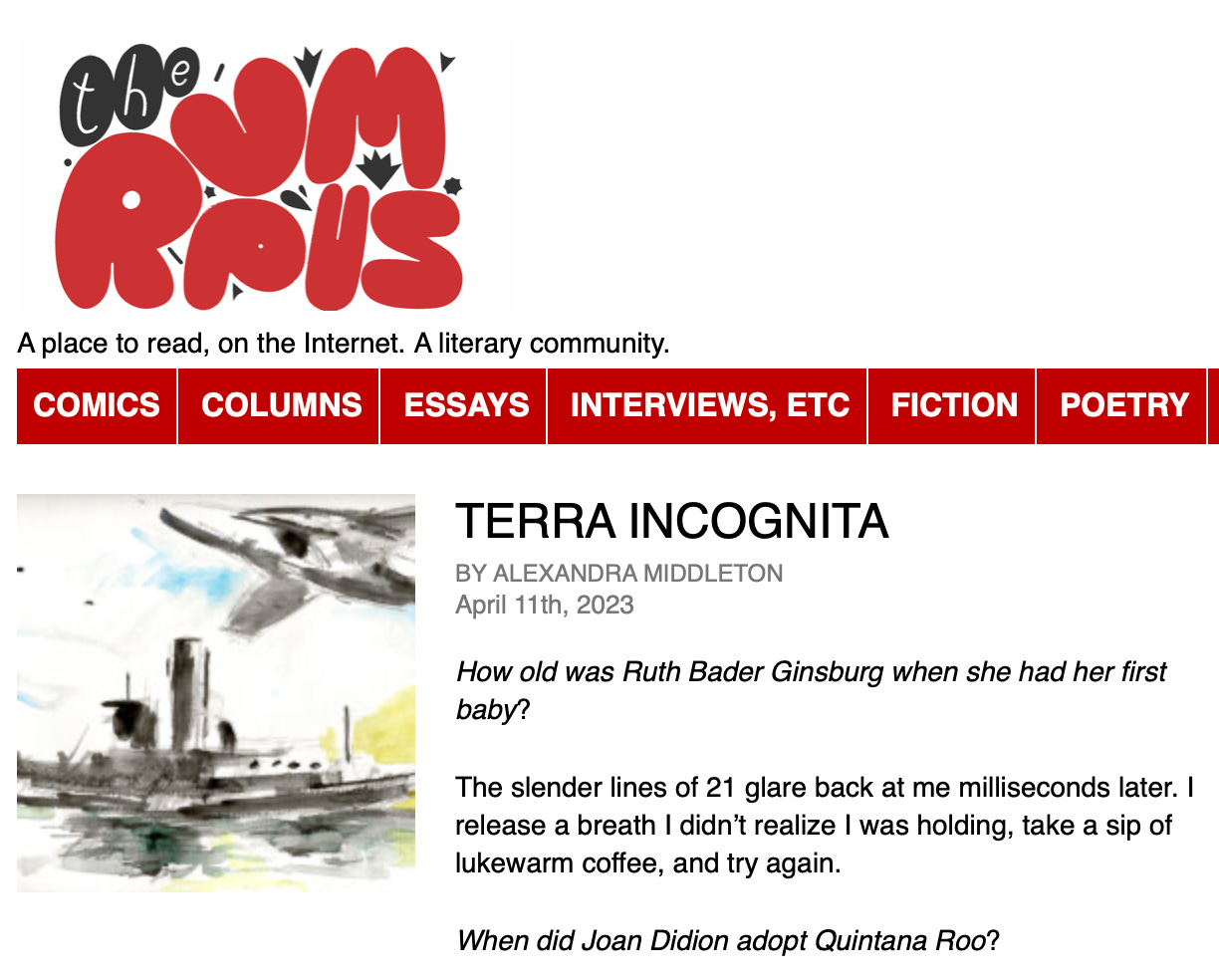
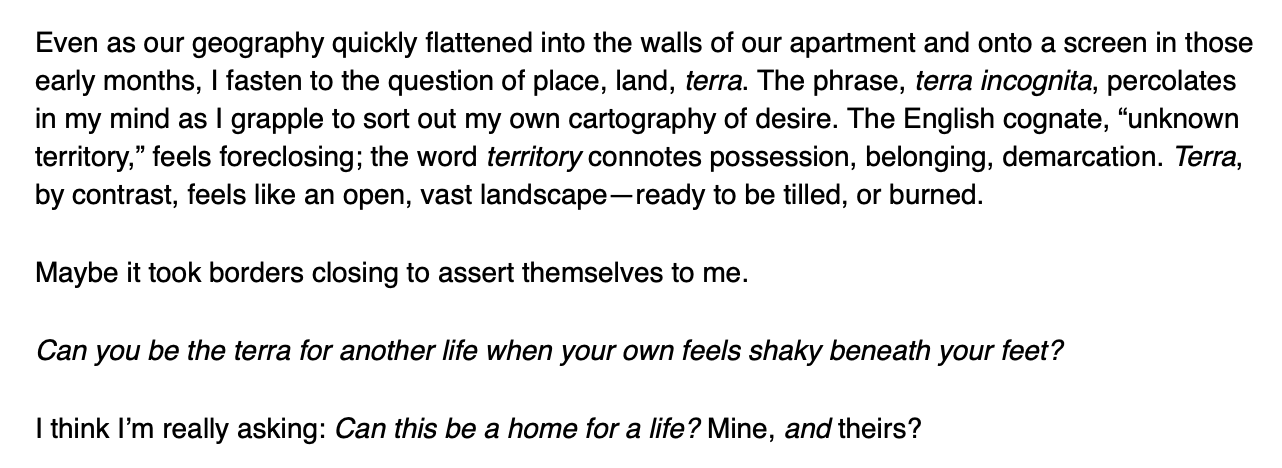

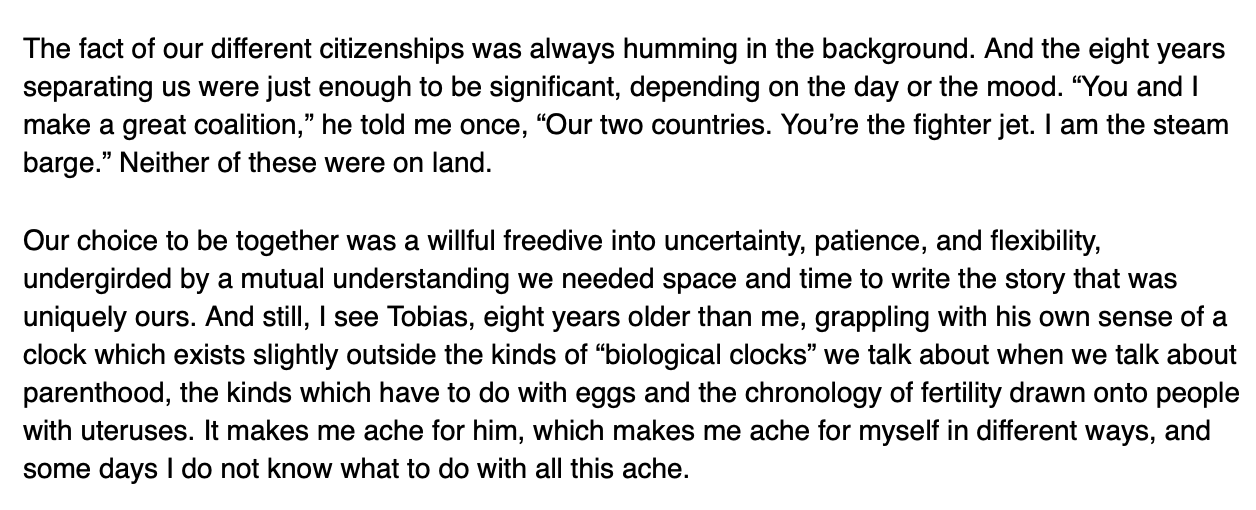
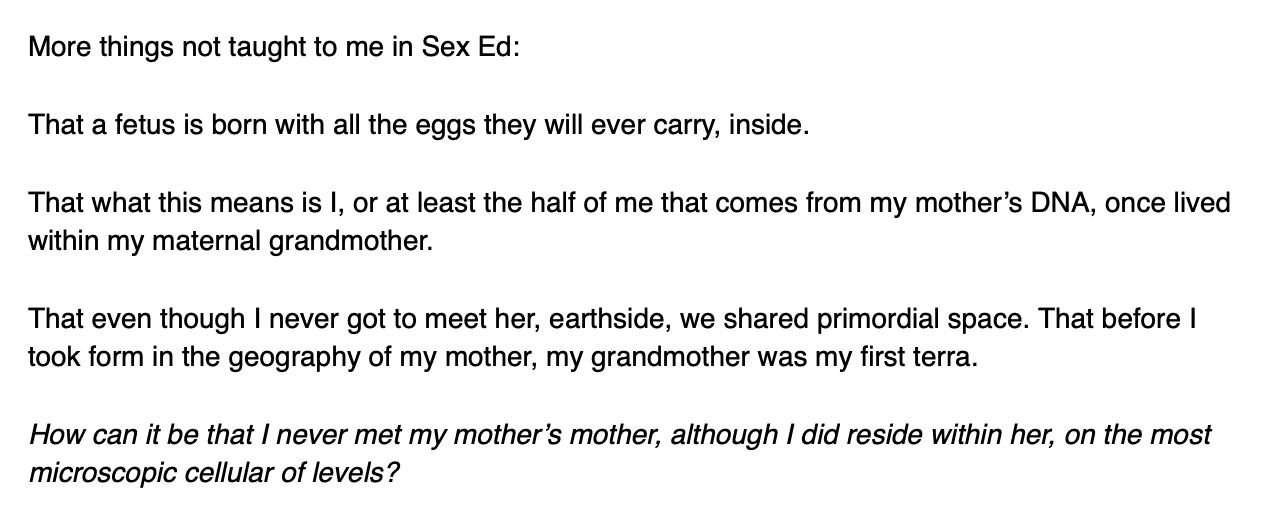
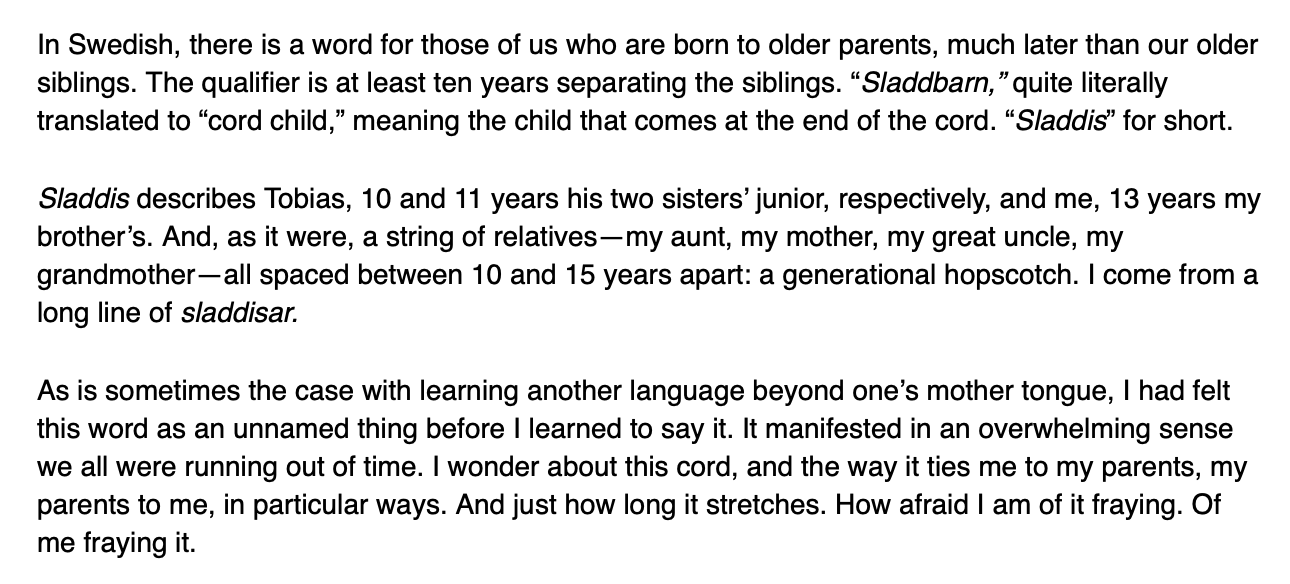


Thank you, Allie, for sharing this deeply personal story. Beautiful.